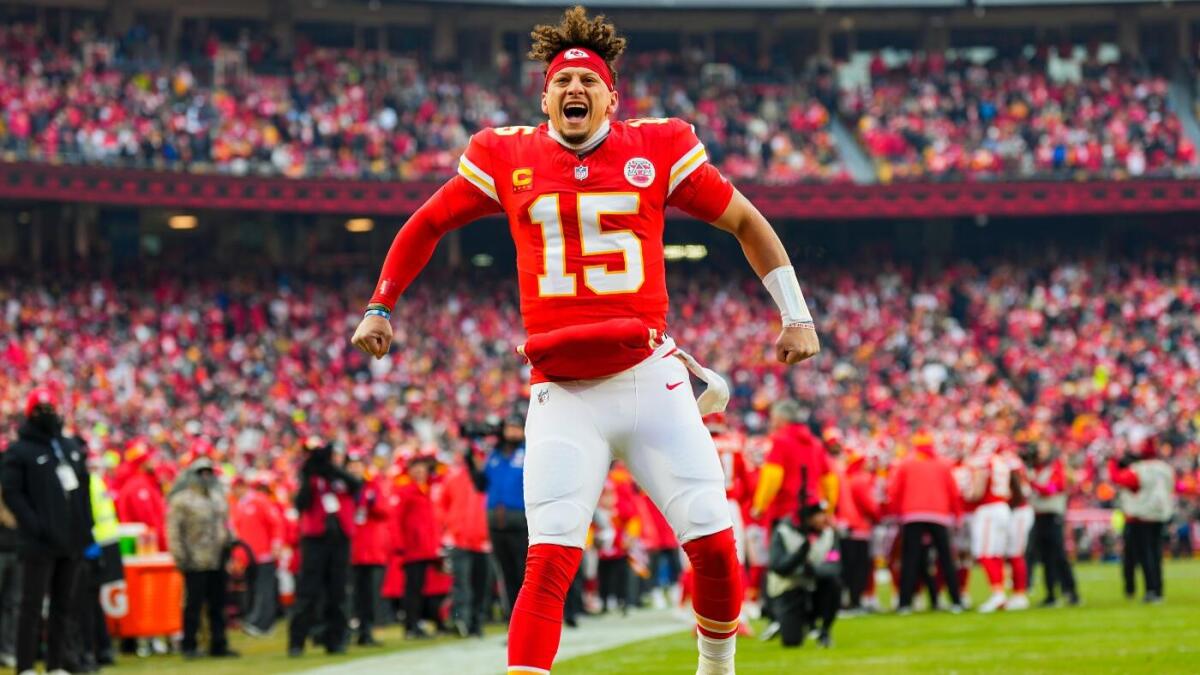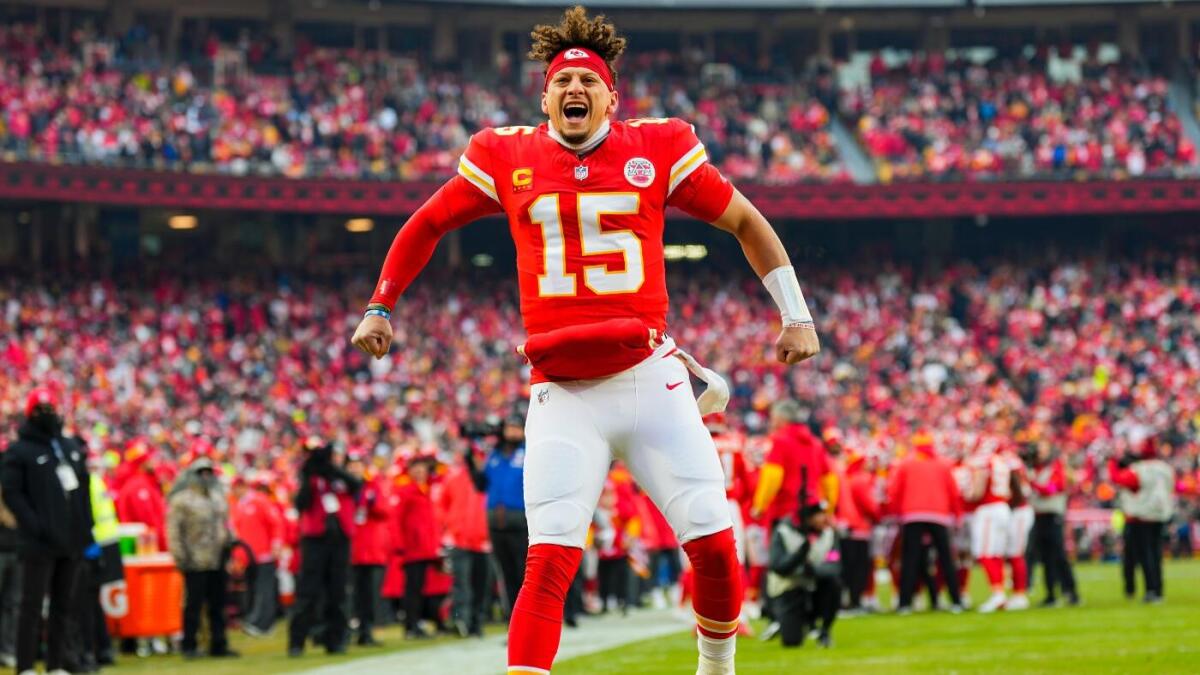The Complexity Behind Patrick Mahomes’ Madden 26 Rating
The annual release of Madden NFL ratings is more than just a video game feature—it’s a cultural event that sparks debates, fuels fan discussions, and sometimes even influences real-world perceptions of players. This year, the release of Madden NFL 26 has brought a particular storm of controversy, centered around the rating of Kansas City Chiefs quarterback Patrick Mahomes. Despite his undeniable status as one of the NFL’s most dominant players, Mahomes received a 95 overall rating, placing him fourth among quarterbacks in the game. This decision has been met with widespread shock, frustration, and accusations of disrespect from fans and analysts alike. To understand the depth of this controversy, it’s essential to explore the factors behind Mahomes’ rating, the broader implications of Madden ratings, and why this particular snub has resonated so strongly with the NFL community.
The Madden 26 Ratings Landscape
Madden NFL 26’s ratings are a reflection of the game’s attempt to quantify player performance, potential, and impact. The “99 Club,” reserved for the game’s highest-rated players, is the ultimate recognition in the virtual world. This year, seven players achieved this elite status, though the specific names have not been fully disclosed. The exclusion of Mahomes from this group is particularly striking, given his track record of excellence.
The controversy surrounding Mahomes’ rating is further amplified by the ratings of other quarterbacks. While the names of the top three quarterbacks ahead of Mahomes have not been explicitly stated, the fact that he is ranked fourth is enough to ignite debate. For context, Matthew Stafford of the Los Angeles Rams received an 88 rating, which, when compared to Mahomes, highlights the perceived disparity in how players are evaluated. This comparison underscores the frustration among fans who believe Mahomes should be at the very top of the quarterback rankings.
Decoding Mahomes’ 95 Rating
Mahomes’ 95 overall rating is a composite score derived from various attributes, including accuracy, toughness, and other performance metrics. His short throw accuracy, for example, is rated at 98, and his toughness is rated at 99. These high ratings reflect his exceptional skills, yet they were not sufficient to propel him into the 99 Club. The reasons behind this are multifaceted and likely influenced by several factors.
One key consideration is that Madden ratings are not solely based on past achievements but also on projected performance and recent statistics. While Mahomes has a storied career with multiple Super Bowl wins and MVP awards, his 2024 season may have been perceived as a “down year” relative to his usual standards. The Kansas City Chiefs, while still a successful team, faced challenges and inconsistencies that may have impacted Mahomes’ individual statistics and overall perception. This shift in performance, even if marginal, could have contributed to his lower rating.
Additionally, the subjective nature of Madden ratings plays a role. EA Sports uses a combination of algorithms and human judgment to determine ratings, which means that factors like leadership, clutch performance, and intangibles are difficult to quantify. While Mahomes is widely regarded as one of the most clutch players in the league, these qualities may not always translate into a higher numerical rating.
The Controversy: Why the Outrage?
The outrage surrounding Mahomes’ rating stems from a deep-seated belief among fans and analysts that he is the best quarterback in the NFL. His track record—multiple Super Bowl victories, MVP awards, and consistent dominance—speaks for itself. To many, a 95 rating feels like a significant underrepresentation of his skill and impact on the game. This perception of a “snub” has fueled the controversy, with fans arguing that Mahomes deserves a 99 rating, if not higher.
Another factor contributing to the controversy is the historical context of Mahomes’ Madden ratings. In previous editions of the game, he has been a member of the 99 Club, reflecting his status as the league’s premier quarterback. The sudden drop to 95 feels like a demotion, especially considering his continued success on the field. This perceived regression has led to accusations that EA Sports is undervaluing Mahomes, either intentionally or through oversight.
The debate also highlights the subjective nature of player evaluation. While EA Sports strives for accuracy, the ratings are ultimately based on human judgment and algorithms that may not perfectly capture the nuances of a player’s performance. The controversy surrounding Mahomes’ rating underscores the challenge of quantifying subjective qualities like leadership, clutch performance, and the ability to elevate a team. These intangibles are often what separate great players from legendary ones, and they may not always be reflected in a numerical rating.
The Impact of Madden Ratings
Madden ratings have a significant impact beyond the virtual world. For players, a high rating can be a source of pride and validation, reinforcing their status as elite athletes. It can also influence their marketability and endorsement opportunities, as a high rating can enhance their reputation and appeal to fans. Conversely, a low rating can be perceived as a slight and a source of motivation to improve.
For fans, Madden ratings provide a framework for evaluating players and debating their relative merits. The ratings fuel discussions and create a sense of engagement with the game and the sport itself. The controversy surrounding Mahomes’ rating demonstrates the power of these ratings to generate buzz and spark passionate debate. Fans invest emotionally in these ratings, seeing them as a reflection of their favorite players’ worth and a validation of their fandom.
The Broader Implications
The Madden 26 rating controversy serves as a reminder of the complex relationship between video games and real-world sports. While Madden strives for realism, it is ultimately a form of entertainment. The ratings are designed to create engaging gameplay and generate discussion, even if they sometimes deviate from objective reality. This disconnect between virtual representation and real-world performance can lead to frustration among fans who expect the game to reflect their perceptions of players.
The controversy also highlights the evolving nature of player evaluation. As data analytics and advanced statistics become increasingly prevalent, the way we assess player performance is constantly changing. Madden ratings reflect these trends, incorporating a wide range of factors to arrive at a final score. However, the subjective nature of these ratings means that they will always be open to interpretation and debate.
Conclusion: More Than Just a Number
Patrick Mahomes’ Madden NFL 26 rating has ignited a firestorm of debate, underscoring the passion and engagement that fans have with the game and the sport. While the 95 rating may not accurately reflect Mahomes’ perceived status as the league’s best quarterback, it has undoubtedly sparked a conversation about player evaluation, the subjectivity of ratings, and the broader implications of video games on the perception of athletes. Ultimately, Mahomes’ legacy will be defined by his on-field performance, not his Madden rating. But the controversy surrounding his rating serves as a reminder that in the world of sports, even a virtual number can carry significant weight. The debate over Mahomes’ rating is more than just a discussion about a video game—it’s a reflection of the deep emotional investment that fans have in their favorite players and the sport they love.












